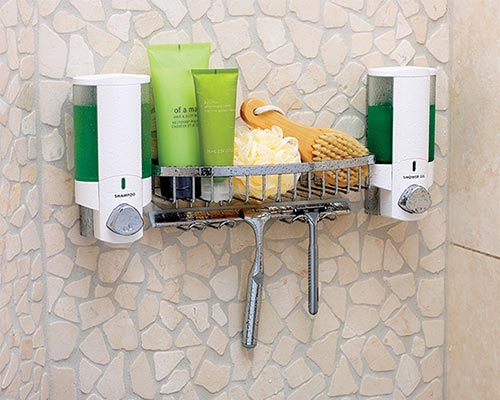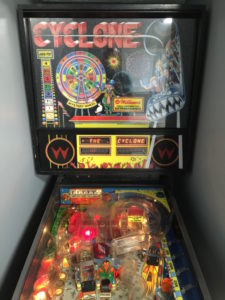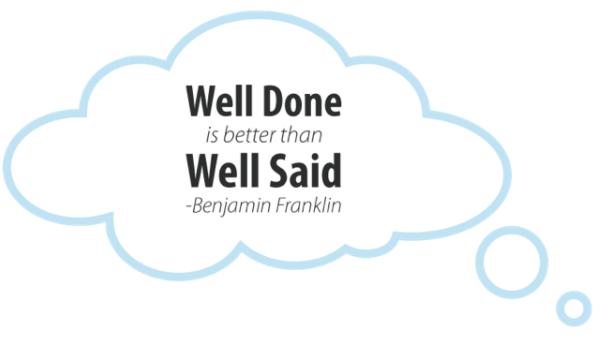 Ever hear something and it just resonates with you? The way a song sounds? The voice of a loved one? Today in a meeting, a prospect recited a James Michener quote to me. I have never heard it before and to be honest, I haven’t heard of Michener. Well stupid me… the guy was a great American writer. He wrote 40+ books over his career, with his most popular being Tales of the South Pacific, which was later made into a movie. Michener is attributed with many quotes, but the one I love goes like this:
Ever hear something and it just resonates with you? The way a song sounds? The voice of a loved one? Today in a meeting, a prospect recited a James Michener quote to me. I have never heard it before and to be honest, I haven’t heard of Michener. Well stupid me… the guy was a great American writer. He wrote 40+ books over his career, with his most popular being Tales of the South Pacific, which was later made into a movie. Michener is attributed with many quotes, but the one I love goes like this:
“The master in the art of living makes little distinction between his work and his play, his labor and his leisure, his mind and his body, his information and his recreation, his love and his religion. He hardly knows which is which. He simply pursues his vision of excellence at whatever he does, leaving others to decide whether he is working or playing. To him he’s always doing both. ” Do you make a distinction between your work or play? Is your labor your leisure? Is love and your religion synonymous? Lastly, do you leave others to decide whether you are working or playing? As for me, I am doing both.
What Makes A Great Commercial?
Ask ten people, get ten different answers. So, what does make a great commercial? Glad I asked myself. Here are three things that you have to have to make a great commercial.
Number one, a great product. You can only hype up crap so much, and in the end, people will know it’s crap if it is. Point being, don’t try to drive your crappy product through a river and up a waterfall if it isn’t made for the task. Disclaimer, I don’t own a Jeep, don’t know if they suck, but I guaranty you wouldn’t want to take my wifes’ Honda in that water.
Number two, a great story. Jeep has long been branded as an off road vehicle. Again, never been in one of road, but suffice to say, if I was going to go off road, I would prefer a Jeep…or a Land Rover, but they didn’t buy a Superbowl spot. And after watching that commercial, I have no doubt that a Jeep would fail me.
Number three, a great producer. Even a great product with a great story, told badly is not so great. Talent (writing, shooting, editing) is plentiful in the world today, but a great producer will pick the best…and execute well. This commercial was short enough to keep my attention, and long enough to brand the ruggedness of their product in my mind. It wasn’t full of special effects or celebrity bravado…it showed their product, conquering the elements.
So take a great product, that has a great story and tell it well…not rocket science, but it isn’t easy. Jeep executed this commercial well and I would bet they are going to have spike in sales because of it. But it still wasn’t my favorite.
How Many Pumps Does it Take?
 Mr. Romantic bought his wife a shower caddy for Christmas… yeah, yeah, I know. I thought this would be a great gift, as it brought organization and conservation all into a nice shiny plastic unit that attaches to your bathroom wall. I now know that women like jewelry, candy and flowers, almost anything else, better than shower caddies, so lesson learned.
Mr. Romantic bought his wife a shower caddy for Christmas… yeah, yeah, I know. I thought this would be a great gift, as it brought organization and conservation all into a nice shiny plastic unit that attaches to your bathroom wall. I now know that women like jewelry, candy and flowers, almost anything else, better than shower caddies, so lesson learned.
While she may or may not like the device, I have to say, I do. When I take a shower, we have our sponge thingy that you put soap on. In the past, I just dump soap onto the bath loofah (I looked it up) in a random amount. I have no rhyme or reason, just squeeze and whatever soap comes out is what I use… and it is usually way to much. But not anymore. So I thought… how much soap do I really need? Experiment time!
December 25 – started with 10 pumps, lots of suds, good and clean!
December 26 – 9 pumps today, hmmm, still good and clean.
December 28 – (don’t judge) 8 pumps and still the same clean.
December 29 – 7 pumps and suds galore, I could have washed twice!
December 30 – 6 pumps and I am getting nervous, will I smell today? I feel clean.
December 31 (am) – 5 pumps and this is getting crazy, still perfectly clean.
December 31 (pm) – 4 pumps and if word of this testing leaks out, Dove stock will crash!
January 1 – 3 pumps, ok, I notice less suds now but I am still 100% clean!
Wow, from 10 pumps to 3 pumps with the SAME RESULTS: 70% less product used to complete the task! I would have never known this if I was a sensitive husband and bought my wife the correct Christmas gift… thank God!
What is the take away? Well, take this test and overlay it into your business, marketing, budgeting, human resources, etc. Do you really know what is possible in all aspects of your business unless you test? Do you really know how long something takes to do or how much it takes to do it, unless you test? Do you know how much you are wasting or could be saving? The answer is, you probably haven’t thought about it… well, you can’t use that excuse any longer. Now go test it.
How Business Is Like Pinball
 I may or may not own a pinball machine… well ok, I do. I played this particular machine a lot in the year 1988 at the local pizza shop in Franklin, Indiana. A favorite past time of mine was to spend lots of quarters on this machine and try to get the high score, or in other words, have my name immortalized in the thrones of electronic data. I went to great lengths (and quarters) to getting the high score, only to leave college and move on. What ever happened to that machine? To my score?
I may or may not own a pinball machine… well ok, I do. I played this particular machine a lot in the year 1988 at the local pizza shop in Franklin, Indiana. A favorite past time of mine was to spend lots of quarters on this machine and try to get the high score, or in other words, have my name immortalized in the thrones of electronic data. I went to great lengths (and quarters) to getting the high score, only to leave college and move on. What ever happened to that machine? To my score?
Today I was blowing off some steam, trying to get the jackpot back up to over 4M before I attempt another run at the board… and then it hit me. Pinball is a lot like business…here are three examples.
You have to know the field/rules. So often I have people want to play me on my machine. They think they can win. While I am not the greatest (I do hold 3 of the 4 top scores, damn you SKO), I understand how to score. Just like so many entrepreneurs today, they get into the game and think it’s easy. Watch some Shark Tank, or a little of the TV show The Profit, help a friend “run” their business… easy! Wrong. If you don’t know exactly what to expect when you get into the game, either game, you will get crushed by your competition that has experience on their side.
You have to practice. I didn’t get the high score on my first try. I didn’t call my shots on the machine until I knew I could make them, or at least look like I knew what I was doing. I often just play to hit the Comet 6 times in a row on a double score clock. In business it is much the same, you have to read. You have to network. You have to try harder and work more if you want to be the best… it doesn’t come naturally.
There is a score… keep it. This doesn’t necessarily mean profit, but that’s nice. As a matter of fact, profit lets you do a lot in business. Help others, expand, employ more people, do greater work, etc. Can you imagine playing pinball without keeping score? What would be the point? Understand what score is important in your business, and keep it. Not only that, but month after month, year after year, understanding more, practicing often, I believe you will beat your old score and become a Pinball Wizard.
6 Reasons To Keep Your Day Job
 Ever had a rough day at the office? Sometimes do you say to yourself that now is the time to start that business and take a chance on that brilliant idea your friends all think is a home-run? Have thoughts swirled around your head about walking into your boss’s office in the morning and saying a few choice words, such as, “I QUIT!”?
Ever had a rough day at the office? Sometimes do you say to yourself that now is the time to start that business and take a chance on that brilliant idea your friends all think is a home-run? Have thoughts swirled around your head about walking into your boss’s office in the morning and saying a few choice words, such as, “I QUIT!”?
Well let me give you some free advice… don’t. Becoming an entrepreneur sounds exciting in theory, but carving your own path, leaving that 9 to 5 job and being your own boss isn’t for everyone. I’d say stay put… and here are my top six reasons why.
1. It takes a long time to start making a profit.
The initial phase of starting your own business is extremely frustrating and demanding. It could take years for you to break even, much less make a profit. The level of uncertainty in creating your own business is extremely high, and it is never set in stone how quickly you will start making money, if ever.
2. You have to invest a lot of time.
Starting your own venture means hours upon hours of work. While a 9 to 5 job sounds stale, at least you know how many hours you will be working. With a new business, you’ll have to invest a lot more time, especially at the beginning. (You hate working 8 hours a day, let alone 14!)
3. Initial financing is difficult to attain.
A substantial investment is often required in opening your own businesses, and for some entrepreneurs this may be difficult to obtain. And since making a profit usually takes a while, it’ll be even harder to pay back your original loan. Don’t even get me started on the practice of how banks decide to whom they lend money.
4. There is a lack of benefits.
No longer working for a “normal” company means losing out on the benefits you receive with your current employer: 401k, health benefits, life insurance, etc. You do have the option of purchasing them, but usually at a higher price.
5. Guess who does everything? You.
Just because you’re the boss doesn’t mean you get to skip out on all the mundane, boring work required. Accounting, HR, Legal, Operations, Sales/Marketing, Customer Support are all areas that you are now responsible for, and while you could hire people to help you, that would bring a whole new paradigm to having a business…employees. Don’t get me started there.
6. Selling yourself is difficult.
Becoming a successful entrepreneur relies on your ability to sell your company, garner buzz and attract attention. If you’re even the least bit introverted, shy or lazy, you’ll find yourself at a big disadvantage when trying to vie for business against a seasoned, confident business owner.
Thought Leadership?
 How do you become a thought leader? Is it worth the time, effort and energy? Can I become a thought leader? Aren’t most thought leaders blowhards, fakes or phonies? These are the questions I think many people ask themselves, I know I do… especially after trolling around LinkedIn, listening to Podcasts and watching youTube. If you’re in a niche industry like I am, you see the usual suspects preaching to their minions about how great Pinterest is, how Twitter is really a great option for businesses and how SnapChat is going to replace Facebook… yawn.
How do you become a thought leader? Is it worth the time, effort and energy? Can I become a thought leader? Aren’t most thought leaders blowhards, fakes or phonies? These are the questions I think many people ask themselves, I know I do… especially after trolling around LinkedIn, listening to Podcasts and watching youTube. If you’re in a niche industry like I am, you see the usual suspects preaching to their minions about how great Pinterest is, how Twitter is really a great option for businesses and how SnapChat is going to replace Facebook… yawn.
I take a different approach. I love the quote by Benjamin Franklin, “Better well done, than well said.” It sings to my heart. I am not a prolific thinker. As a matter of fact, I have told many people that I am an abecedarian thinker. While I label myself the “king of analogies,” I have never been one to throw my hat in the arena of “thought leadership.” I liken myself to Ben’s quote, doing is better than talking. And while talking, or writing for that matter, is important, if you don’t have the first hand experience to back up what you are discussing, I think it diminishes your voice in the conversation.
So then, how do you become a thought leader? Well, be a leader and talk to others about it. Share your experiences, your successes and your failures. Mentor (that is code for free) others in your field. Consult (that is code for getting paid) with clients to share your knowledge to better their businesses. Write. It doesn’t have to be a book, but that helps. Talk. Into a recording device and have a podcast. Record into a camera and have a video blog. Don’t forget to share, promote and advertise. Pick a social medium platform and dive into it. Don’t make the mistake of trying to vomit content everywhere across the web and your city just because you can.
Lastly, don’t self proclaim to be something you’re not. Doing your best in the real world, documenting it and sharing it is what you should focus on. Let others label you a thought leader… having them place that title on you will mean much more.

